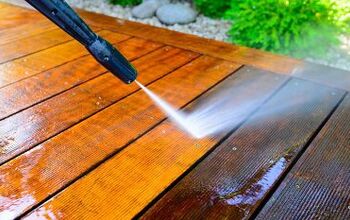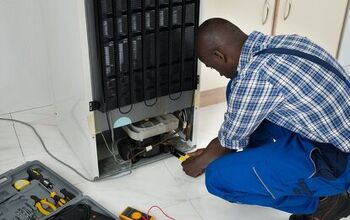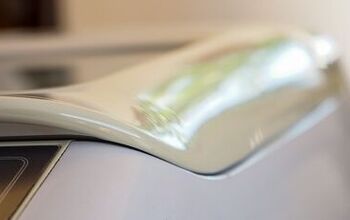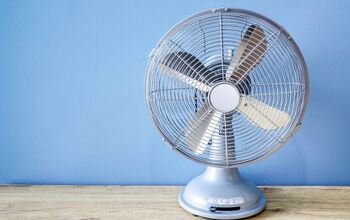Can A Window AC Unit Get Wet?

In the summertime, when it can get quite hot both indoors and outdoors, having an air conditioning system is critical. But not all homes and businesses can accommodate massive HVAC systems, and those that can’t tend to rely on the classic window AC units.
These units have been around for almost a century, so clearly they’ve stood the test of time. These units are beneficial for a variety of reasons, and they usually hold up well against the elements.
But can a window AC unit get wet? What about rain, either light or heavy? This article answers these questions and many more.
If a window AC unit gets wet, there’s not much to worry about. If, however, the unit is submerged in water, then eventually the electrical components will short-circuit and the system will be rendered inoperable. But generally speaking, water can make contact both inside and outside the system without creating a huge problem.
Do You Need a Window A/C Unit Installed?
Get free, zero-commitment quotes from pro contractors near you.

What Happens if a Window AC Unit Gets Wet?
Before this question can be answered, it must be pointed out that a window AC unit has both exterior components and interior components. All of the exterior components can get wet, while the vast majority of the interior components can get wet as well.
Exterior
If the exterior of a window AC unit gets wet, this won’t be an issue. In fact, if it’s rain that’s making the exterior wet, this may serve as a natural cleaner for the window AC unit’s exterior, especially if the rain is particularly heavy.
Interior
But when it comes to the interior of a window AC unit, for the most part water isn’t an issue, provided there isn’t a substantial amount of it. An AC unit can withstand a decent amount of water exposure, but it can’t be submerged completely in water, for at a certain point the electrical components would short-circuit and the unit would no longer function.
Where Are the Unit’s Electrical Components?
The electrical components are kept safely away from the parts of the window AC unit that can come in contact with water. This doesn’t mean that water will never reach these components. If the protective encasement that contains the electrical components cracks, water may seep through, make contact with the electrical components, and render the system inoperable.
What Does Rain Do to a Window AC Unit?
Rain is what will make your window AC unit wet most often. In general, rain won’t negatively affect the unit, even if there’s a lot of it pouring from the clouds.
The thing is that rain doesn’t come down alone often. Especially when there’s heavy rain, it’s likely there will be high winds and perhaps thunder and lightning as well.
In such a scenario, it’s likely that debris will be blowing around, and if some gets trapped in your window AC unit, then a problem may be just around the corner. Debris may affect the blower, the condenser, the coils, or another important component.
To ensure your system is safe before and after a storm, routinely check it for sticks, leaves, and other debris. Doing so will help ensure the system stays running right for many years.
Preventing Rain From Affecting the AC Unit
Even though rain doesn’t negatively affect a window AC unit’s performance or damage it, a lot of individuals still utilize window AC unit covers. These are not really for keeping out rain—even though they do that—they’re more so for keeping out debris.
You should avoid using a homemade cover, especially one that’s made of plastic. Some individuals try to cover their window AC units with garbage bags or tarps, but neither option is a good move.
If you use a makeshift cover, water will find its way into the AC unit and get trapped, and trapped water can actually be quite damaging. Trapped water can lead to rust, mildew and mold growth, and a variety of other elements that’ll break the unit down over time.
Is It Safe to Use an AC Unit in the Rain?
Using a window AC unit while it’s raining outside is for the most part safe. If, however, the rain is accompanied by thunder and lightning, then the unit could get damaged significantly if your home is struck by lightning. A lightning strike can only damage an air conditioner if the unit is running when it’s struck.
Instances of this happening are somewhat rare, but it’s still wise to expect the unexpected. However, if it’s brutally hot inside without the AC unit running, you’re better off running the unit than worrying about a freak lightning strike rendering it inoperable.
Can a Window AC Unit Be Cleaned With Water?
Yes, a window AC unit can be cleaned with water. You can even use a garden hose to clean it.
When washing the unit’s exterior, you don’t even need to be gentle. Put on a powerful stream setting and spray the exterior to remove any dirt and grime that’s built up.
You should also open up the unit so you can give the condenser a thorough spray. But you should be careful when doing this, as you’ll need to avoid drenching the other components. And if you’re worried about cleaning the condenser, you can always get a professional to handle this for you.
Why Spraying a Window AC Unit Is Good
Rinsing a window AC unit with water can be good for a variety of reasons. For one, doing this will make the system run more efficiently. And if the system has an easier time cooling off, it won’t have to work as hard to supply cool air, and this will mean less energy is used and more money is saved.
Washing a window AC unit routinely will lengthen its lifespan. Therefore, if you want your window AC unit to last a long time—and who wouldn’t want this—then you should wash it at least once a month, and more often in the summertime, as this is when it’s used most.
You should also take out the filter for cleaning every 60 to 90 days, as a dirty filter can lead to a lot of problems. Cleaning the air conditioner inside and out will also get rid of particles that can sometimes build up. If these particles are allowed to build up, eventually they’ll make unit repair or replacement necessary.
Can a Window AC Unit Produce Water?
When a window AC unit runs, water is created as a byproduct. The unit will drain this water outside, as this way the water can’t pool inside the unit and create a host of problems. However, if water is pooling around the windowsill that’s supporting the window AC unit, then this could be indicative of a problem that needs to be addressed.
Why Does Water Pool Around a Window AC Unit?
When water is pooling around a window AC unit on the inside, this could be because there’s a leak somewhere, a drain line is clogged, there’s ice building, or warm air has infiltrated the system. Whenever you notice a leak, it’s best to get in touch with a professional HVAC tech right away, as they’ll know what’s wrong.
Do You Need a Window A/C Unit Installed?
Get free, zero-commitment quotes from pro contractors near you.

Related Questions
What will snow do to a window AC unit?
If it snows for just an hour and the snow isn’t able to build up on the AC unit, then you won’t have a problem. It’s when snow is allowed to build up, and ice builds, that there may be a problem. Snow could pile up on the coil and other internal parts, and if this happens the unit may rust.
Should a window AC unit be taken out before the winter?
It’s best to take a window AC unit out before the winter. This way you don’t run the risk of the system getting damaged before you need it in the spring and summer months. Precipitation in the winter can be more damaging to a window AC unit, whether it’s rain, snow, sleet, or hail.

Matt loves everything DIY. He has been learning and practicing different trades since he was a kid, and he's often the first one called when a friend or family member needs a helping hand at home. Matt loves to work with wood and stone, and landscaping is by far his most favorite pastime.
More by Matthew Mountain



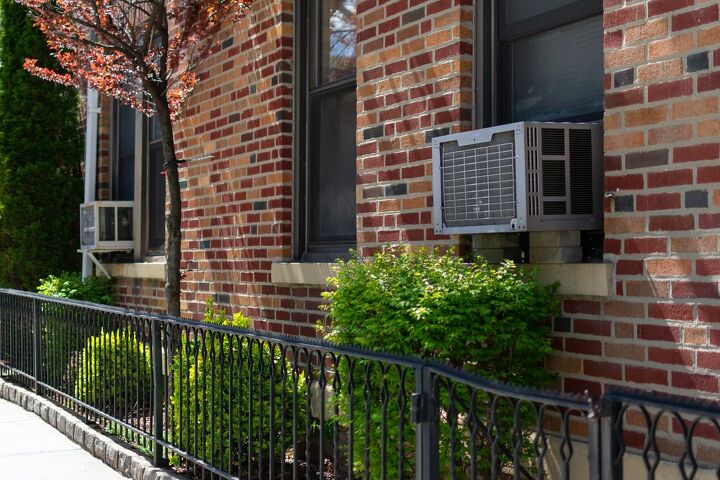








![10 Best Scroll Saws for 2022 [Ultimate Reviews & Buyer's Guide]](https://cdn-fastly.upgradedhome.com/media/2023/07/31/9070684/10-best-scroll-saws-for-2022-ultimate-reviews-buyer-s-guide.jpg?size=350x220)






